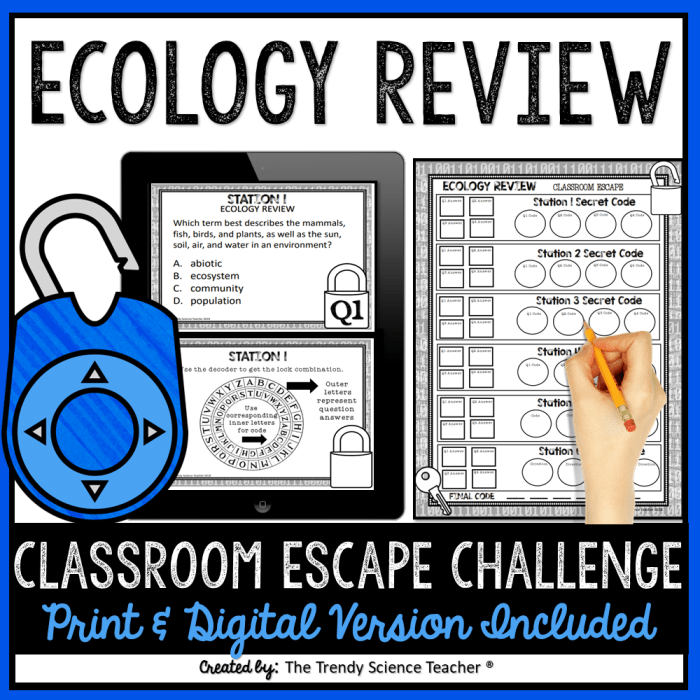Embark on a journey into the realm of ecology with our comprehensive ecology review worksheet answer key. This guide serves as an indispensable companion, deciphering the intricacies of ecological concepts and empowering you to unravel the mysteries of the natural world.
From the fundamental principles of ecosystems to the intricate dynamics of population and community ecology, this answer key illuminates the interconnectedness of living organisms and their environment. Dive into the fascinating realm of biodiversity and conservation, gaining insights into the threats facing our planet and the crucial role of sustainable practices in safeguarding its future.
Ecology Review Worksheet Overview

The ecology review worksheet provides a comprehensive overview of the fundamental concepts and principles of ecology. It is designed to reinforce understanding of key ecological terms, concepts, and relationships within ecosystems.
The worksheet covers various aspects of ecology, including ecosystem dynamics, population ecology, community ecology, biodiversity, and human impacts on the environment.
Ecosystems and Interactions, Ecology review worksheet answer key
Ecosystems are defined as communities of living organisms and their physical surroundings. They can vary in size and complexity, from small ponds to vast forests.
Organisms within ecosystems interact with each other in various ways, forming complex food chains and food webs. Symbiotic relationships, such as mutualism, commensalism, and parasitism, play crucial roles in shaping ecosystem dynamics.
Population Ecology
Population ecology focuses on the dynamics of populations, including population density, growth, and decline.
Population density refers to the number of individuals per unit area or volume. Factors such as birth rates, death rates, immigration, and emigration influence population growth and decline.
Carrying capacity is the maximum population size that an environment can support over a long period.
Community Ecology
Community ecology examines the structure and dynamics of ecological communities.
Community structure refers to the composition and abundance of different species within a community. Factors such as competition, predation, and environmental conditions influence community composition.
Ecological succession is the gradual change in community composition over time, leading to the development of more complex and stable ecosystems.
Biodiversity and Conservation
Biodiversity refers to the variety of life on Earth, including the diversity of species, ecosystems, and genetic variation within species.
Threats to biodiversity include habitat loss, pollution, climate change, and overexploitation. The loss of biodiversity can have severe consequences for ecosystem functioning and human well-being.
Conservation efforts aim to protect and restore biodiversity through measures such as habitat protection, species management, and sustainable practices.
Human Impacts on the Environment
Human activities have a profound impact on the environment, including pollution, habitat loss, and climate change.
Pollution, such as air and water pollution, can disrupt ecosystems and harm wildlife. Habitat loss, caused by deforestation and urbanization, reduces the availability of resources for species and can lead to population decline.
Climate change, driven by greenhouse gas emissions, is altering ecosystems and affecting species distribution and survival.
Sustainable practices, such as reducing carbon emissions, conserving resources, and protecting habitats, are essential for mitigating human impacts on the environment.
Commonly Asked Questions: Ecology Review Worksheet Answer Key
What is the purpose of the ecology review worksheet?
The ecology review worksheet is designed to assess students’ understanding of key ecological concepts, including ecosystems, population dynamics, community structure, biodiversity, and human impacts on the environment.
How can I use the ecology review worksheet answer key effectively?
Use the answer key to check your answers, identify areas where you need further clarification, and reinforce your understanding of the material covered in the worksheet.
What are some common misconceptions about ecology?
One common misconception is that humans are separate from nature, rather than being an integral part of it. Another misconception is that the environment has an infinite capacity to absorb pollution and other human impacts.